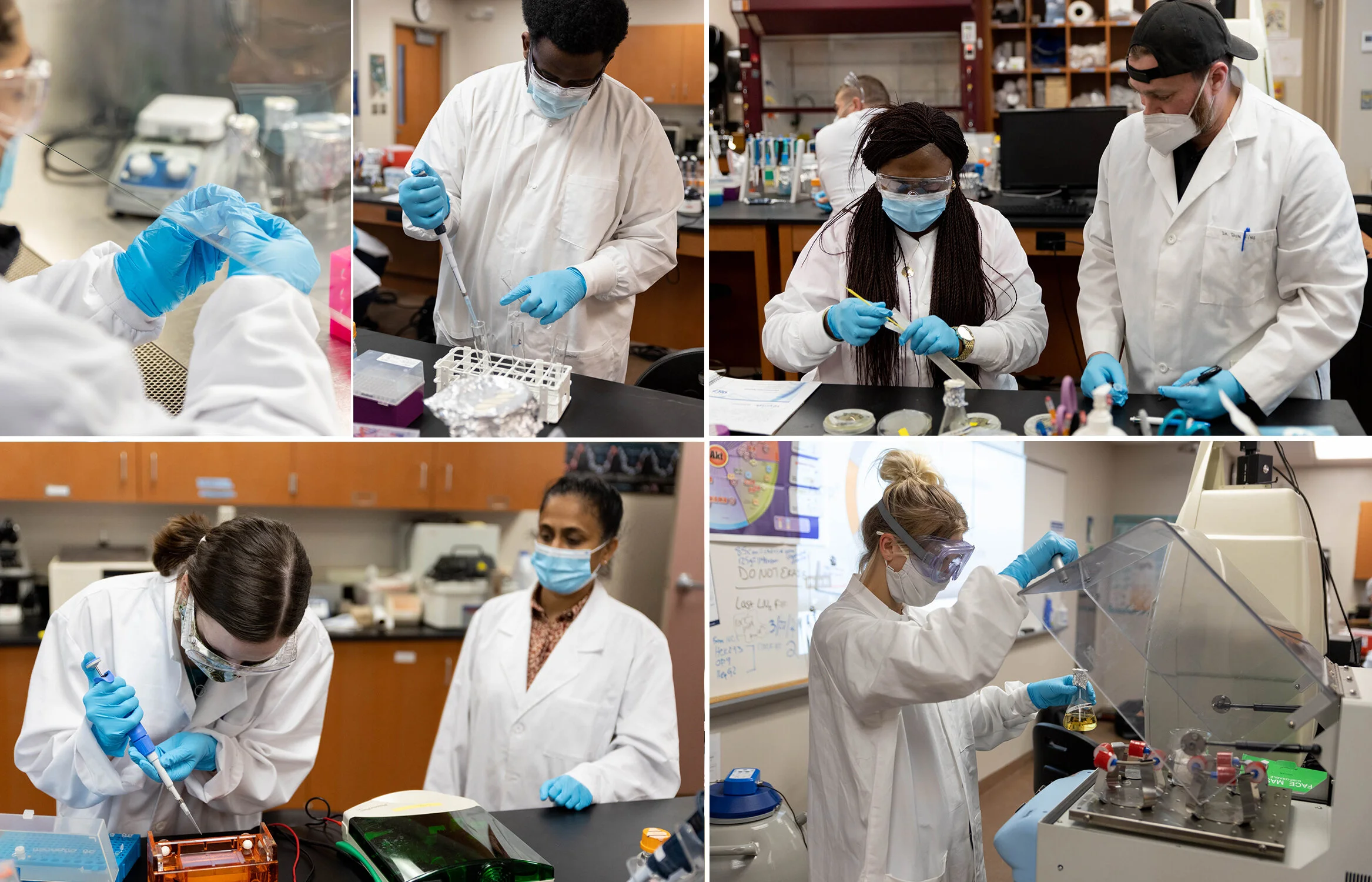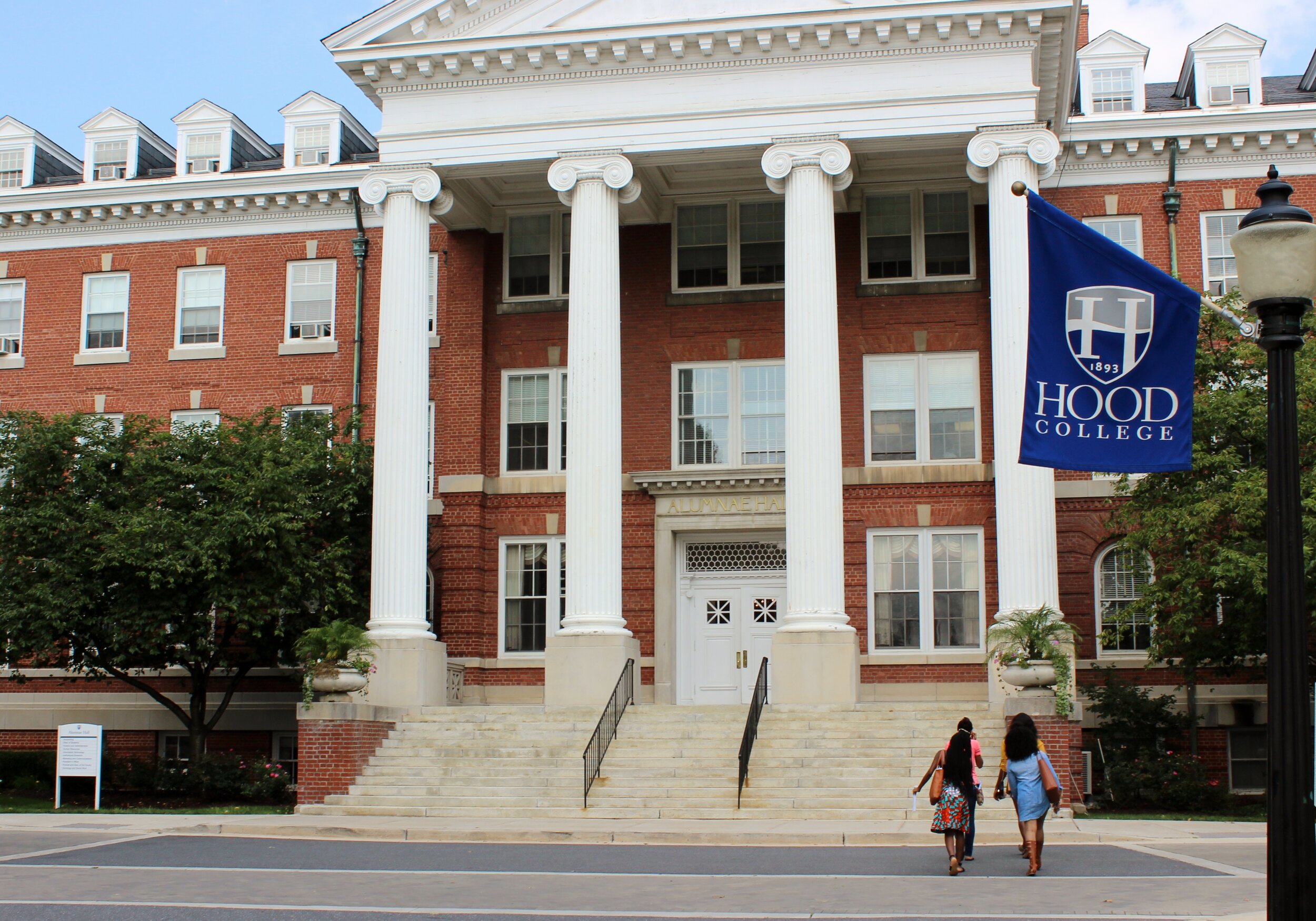As qualified life sciences job candidates continue to be in high demand, Frederick’s higher education institutes have stepped up to the plate to help fill the local talent pipeline, better qualify the candidate pool, and shorten the on-boarding process of new hires.
Below we take a look at some of the programs preparing local life science students at two City-based institutions.
Frederick COmmunity College (FCC)
Frederick Community College offers a biotechnology program that is geared to meet the life science/biotech industry workforce needs.
FCC offers Biotechnology Associates degree (60 credits) that are transferrable to 4-year colleges and a certificate (35 credits). The program equips students with basic skills like aseptic technique, good manufacturing and documentation practices GMP & GDP, cell culture and molecular biology techniques. The program is very aligned with industry practices as many of courses have guest presentations and lab demonstration from alumni working in the industry. FCC’s current students and graduates are working in local biotech companies like Lonza, Texcell, Precision for Medicine and Thermo Fisher, to name a few. Biotech lab classes are held in the evening and FCC has very flexible schedules that allows students to take classes while working in the industry and graduate with biotech AAS degree or certificate.
FCC recently established a registered biotechnology apprenticeship program with the Maryland Department of Labor. The apprenticeship program enables a student to earn, learn and train at the same time. The advantages that the program has for employers are that companies can build and retain its workforce, increase productivity, and receive tax benefits and financial incentives from State. Currently, three Frederick companies - VaLogic, Texcell and Kite Pharma - are participating in the program. FCC does all the paperwork and recruiting of the apprentices for the companies.
Dr. Savita Prabhakar shared, “I feel that this is a great opportunity for students, FCC biotech program and the biotech industry as students can make connections with what they are doing at the job site with what is being taught in the class and make real connections, can understand the concepts, and perform well at their job. It is a win for everyone, and I hope to see more companies participating in this apprenticeship program. “
“Our program also works closely with four-year schools like Hood College and Mount Saint Mary’s University and also with Frederick County Workforce Services. We have several outreach activities with Frederick high schools especially the LYNX program at Frederick high and Young Scholars program. These activities are intended to build a diverse pipeline of students that would enter the program in the coming years. “
Frederick Community College is launching a new program in Logistics and Supply technology in Fall 2021. This program will prepare students to enter in to supply chain, biotechnology, and manufacturing. This non-credit program provides foundations for in demand industry jobs or advanced training. FCC plans to launch an advanced biotech systems and maintenance program in 2022 that will teach students process controls especially DeltaV and PLC programing along with the regulatory aspects of biotech. Dr. Prahhakar added, “This is a skill combination that that the industry is looking for.”
Contact: Dr. Savita Prabhakar, Frederick Community College sprabhakar@frederick.edu
Hood College
The Biomedical Science (BMS) Master of Science degree began offering courses to support the research laboratories of Frederick County in 1976. As the companies engaged in biomedical research have expanded, so has the curriculum for the program. Beginning as a research focused degree, the program now offers tracks in Immunology/Virology/Microbiology as well as in Biotechnology and Molecular Biology. Students may pursue the M.S. degree part time or full time.
Many area employers offer tuition assistance for continued graduate studies. There are currently 65 students in the BMS program. Post-graduation, students may earn a promotion, change jobs due to increased qualifications, or even pursue further studies such as a Ph.D.
The Advisory Council for the BMS program advises faculty on what skills are critical for success in the field of biopharma, research and development, including representatives from the NIH, USDA, USAMRIID, Astra Zeneca, Kite Pharma, Texcell, Southern, Imquest, USDA, and Medigen. Students have completed thesis research directed by scientists in many of these institutions.
In addition to the Hood faculty, research scientist serves as guest lecturers and some offer courses for the program, a notable example being an alum, Dr. Rebecca Erwin-Cohen who teaches Immunology and Dr. Dom Esposito (FNLCR) who offers an elective in Oncology Drug Development.
“The Hood College Graduate program in Biomedical Sciences (BMS) has many broad benefits to students. I speak as a Hood College alumna myself, as an Adjunct Faculty member at Hood College, and as someone who is involved in recruiting new talent into the workforce. The BMS program gives students a firm foundation – the knowledge base covers the building blocks of science (DNA, RNA, Protein), teaches students how to build with those building blocks (biochemistry, immunology, virology, genetics, microbiology), and culminates with students becoming biomedical architects (internships, Mock Grant Proposal, Master’s Thesis). At every step in the student academic journey, they are taught skills that transcend an educational setting and help to prepare them for real world work situations in Biomedical Science. Students learn how to write in the language of formal science writing, how to orally communicate their science to others, and how to carry themselves in a professional environment to successfully work with others. As an alumna, one of the things I have values most about the hood College education I received was the sense of wonder that my studies at hood inspired in me; I have never stopped learning, continue asking questions, and continue trying to further my understanding of science”
Rebecca Erwin-Cohen, Ph.D. National Cancer institute @ Ft. Detrick
“It is really a twofold thing for me. We have hired some staff who graduated from the BMS program and their experiences in the program have really helped to make them more attractive hires. In particular, the really strong grounding that they have in molecular science are essential background knowledge that makes these folks easier to train and able to handle the complexity of projects that we work on. In particular for my group, Craig Laufer’s biochemistry and protein purification classes form an absolutely essential set of skills that translates directly to our work.
The other angle is that we have a lot of staff who are in the BMS program while working in our lab. And in this case, not only do they benefit from the coursework in the same way I just mentioned, but they are able to often carry out projects in the lab as thesis work, giving them the opportunity to apply things that they’ve learned to important R&D (Research and development) projects, while at the same time gaining independence. This usually leads to them becoming better scientists and able to take on more independent projects in the future, which is also great for their job growth since that is a key metric for promotion.”
Dr. Dominic Esposito, Director Protein Expression laboratory, FNLCR
Hood College also recently partnered with Kite Pharma, a major incoming pharmaceutical company, to train employees for its new Urbana facility. Learn more about the exciting opportunity here.
Contact: Dr. April Boulton, Hood College boulton@hood.edu


